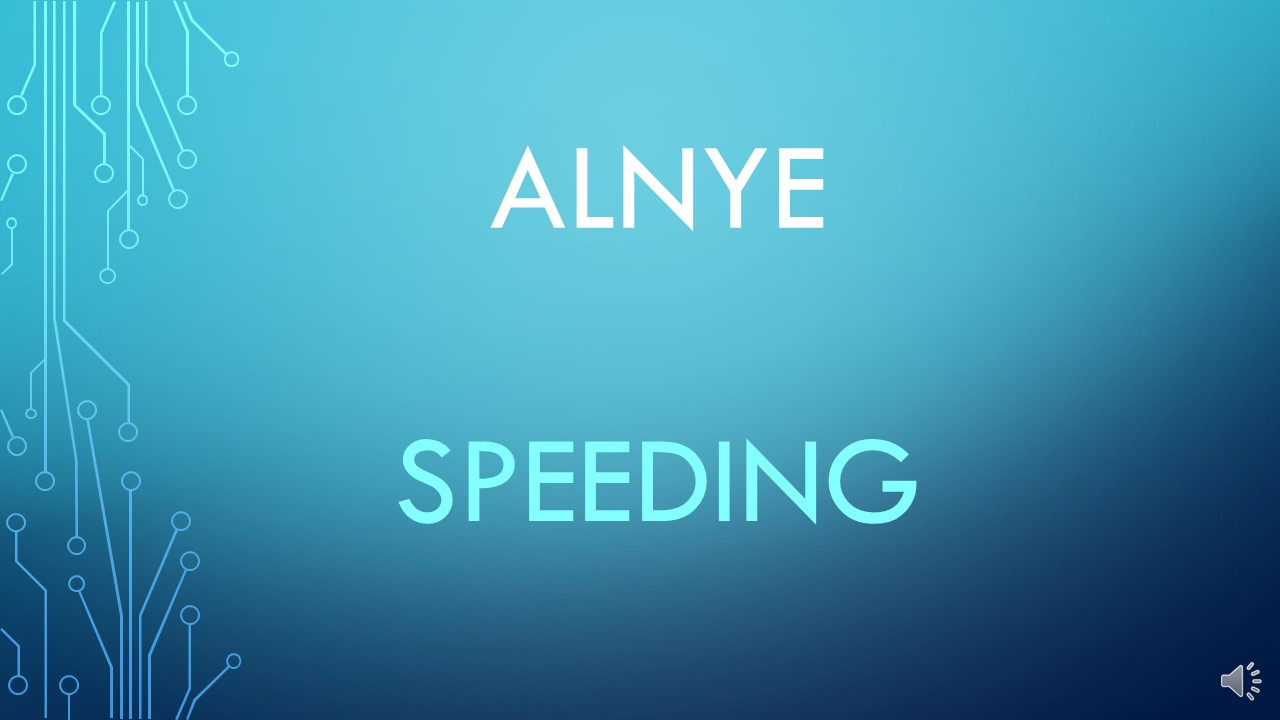leader - PowerPoint PPT Presentation
Title:
leader
Description:
assuming leadership – PowerPoint PPT presentation
Number of Views:0
Title: leader
1
Alnye
- Speeding
2
Alert today / alive tomorrow
- The Key To Safety Is in Your Hands.
3
Negative aspects of speeding
- Braking distance reduced
- Wear and tear on vehicle
- More fuel consumption
- INCREASED POSSIBILITY OF ACCIDENT, CRASH DEATH
- What does 5 seconds mean to you _at_ 70MPH
4
(No Transcript)
5
Effect of Speed on Stopping Distance
- Whenever you double your speed, it takes about
four times as much distance to stop, and your
vehicle will have four times the destructive
power if it crashes. High speeds increase
stopping distances greatly. By slowing down a
little, you can gain a lot in reduced braking
distance.
6
Driving too fast is a major cause of fatal
crashes. You must adjust your speed depending on
driving conditions. These include traction,
curves, visibility, traffic and hills. Speed and
Stopping Distance Three things add up to total
stopping distance Perception Distance Reaction
Distance Braking Distance----------------------
---- Total Stopping Distance
7
- Perception distance The distance your vehicle
travels, in ideal conditions from the time your
eyes see a hazard until your brain recognizes it.
Keep in mind certain mental and physical
conditions can affect your perception distance.
It can be affected greatly depending on
visibility and the hazard itself. The average
perception time for an alert driver is 1¾
seconds. At 55 mph this accounts for 142 feet
traveled.
8
- Braking distance The distance your vehicle will
travel, in ideal conditions while you are
braking. At 55 mph on dry pavement with good
brakes, it can take about 216 feet.
9
- Total stopping distance The total minimum
distance your vehicle has traveled, in ideal
conditions with everything considered, including
perception distance, reaction distance and
braking distance, until you can bring your
vehicle to a complete stop. At 55 mph, your
vehicle will travel a minimum of 419 feet.
10
Effect of Vehicle Weight on Stopping Distance
- The heavier the vehicle, the more work the brakes
must do to stop it and the more heat they absorb.
But the brakes, tires, springs and shock
absorbers on heavy vehicles are designed to work
best when the vehicle is fully loaded. Empty truck
s require greater stopping distances, because an
empty vehicle has less traction. It can bounce
and lock up its wheels, giving much poorer
braking. (This is not usually the case with
buses.)
11
(No Transcript)
12
Matching Speed to Road Surface
- You cannot steer or brake a vehicle unless you
have traction. Traction is friction between the
tires and the road. There are some road
conditions that reduce traction and call for
lower speeds.
13
- Technology allows us to monitor speed through
the use of - Speed Gauge
- ELECTONIC DATA LEAVES US EXPOSED IF AN INCIDENT
OCCURS
14
If a truck driver is speeding, its likely there
are some other bad things going on toospeederS
10mph OVER are 69 more likely to be involved in
a collision. The moderate speeders that are in
excess of the limit but no more than 10 mph over
it are 45 more likely to be in that collision.
15
Speedguage allows us to monitor speeds in support
of our drivers to discredit fraudulent complaints.
- IT NOT ONLY SHOWS DRIVERS THAT ARE SPEEDING BUT
ALSO SUPPORTS DRIVERS THAT OBEY THE SPEEDS
16
YOU HAVE A FAMILY TO RETURN HOME TO WE ARE
NEVER IN THAT BIG OF A HURRY































